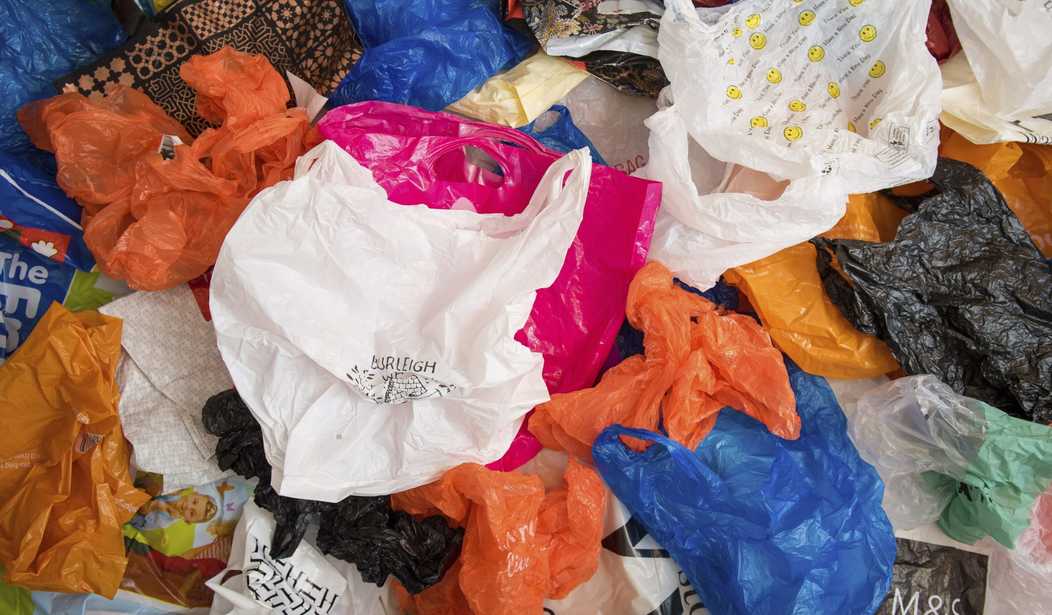Plastic shopping bag bans have been all the rage in liberal municipalities for years now. As a former resident of West Los Angeles who did much of his shopping in Santa Monica, I was subjected to two city-wide bans before the state of California enacted the first statewide ban in 2016.
Banning plastic shopping bags is yet another liberal feel-good issue that is based on little more than emotion. California’s affordable housing has almost vanished, but it’s far-left legislators want people to pay extra for shopping bags because they can pretend they’re saving Earth or a dolphin or something.
New York recently jumped on the bag ban bandwagon, which means the nonsense has been legitimized by the two biggest Democrat-run states in America.
Staunchly liberal NPR examined the effectiveness of plastic bag bans for its “Planet Money” newsletter in a post titled “Are Plastic Bag Bans Garbage?” and discovered some interesting downsides to the bans.
NPR talked to an economist from the University of Sydney named Rebecca Taylor, who has been studying bag regulations.
A hugely interesting thing uncovered by Taylor was what happened because people no longer had plastic shopping bags they could reuse for other things like picking up dog poop or lining garbage cans (I use mine for the latter, as well as for my recyclables).
What she found was that “…sales of garbage bags actually skyrocketed after plastic grocery bags were banned,” mostly of the 4-gallon variety that’s used to line smaller garbage cans.
According to Taylor’s research, this means that “about 30 percent of the plastic that was eliminated by the ban” is replaced by larger, even thicker plastic bags.
The NPR writer then examines the alternatives to plastic shopping bags — paper and cloth — and that news isn’t good for the eco-conscious either.
Paper bags “are actually worse for the environment” because “They require cutting down and processing trees, which involves lots of water, toxic chemicals, fuel and heavy machinery.”
The end result of all of that is “the huge increase of paper, together with the uptick in plastic trash bags, means banning plastic shopping bags increases greenhouse gas emissions.”
Yes, they are biodegradable, which helps in the long run, but there is an upfront price being paid that runs counter to what most enviro-conscious global warming types preach.
Cloth bags are an even worse trade-off. Studies have found that one “would have to use an organic cotton bag 20,000 times more than a plastic grocery bag to make using it better for the environment.”
Taylor recommends imposing a fee on both paper and plastic bags rather than a ban to encourage people to switch to better options like reusable polyester bags.
My personal experience in L.A. leads me to believe this isn’t ideal. Did I buy reusable bags? Yes. Did I remember to always have them with me when I went to the store? No.
I would say that at least sixty percent of the time I ended up paying the fee for the paper bags. By the time I left California, I was the not-so-proud owner of, oh, about 534 reusable shopping bags. One of the happiest parts of my move was leaving those obnoxious things there.
I am back living in a free state and have a bagful of plastic shopping bags that will all eventually find a second, and maybe a third use.
All because I have the choice.










Join the conversation as a VIP Member